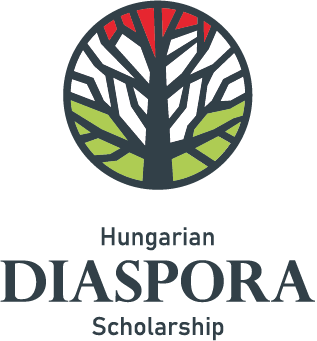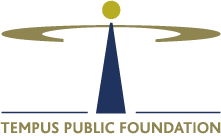EligibilityApplication ProcessRequired DocumentsAlready a scholarship holderLearning Hungarian LanguageVisa
Under the scholarship, would I still be able to apply for Erasmus to study abroad?
As regards the benefits of scholarship holders, the Operational Regulation allows scholarship holders to spend a continuous period of up to 30 days abroad for research, study, conference participation, internships or other study-related purposes during their study period. Participation of scholarship holders in study-related programmes abroad (conferences, study visits, etc.) of up to 30 days may also be supported under other scholarship programmes (e.g. Erasmus+, CEEPUS). An exception to the above is the European Solidarity Corps Volunteering Programme, as it is not compatible with the scholarship holder’s studies.
Am I eligible to apply for the scholarship if I hold Hungarian citizenship?
Yes, applicants holding dual-citizenship are eligible to apply for the scholarship, also in case one of the citizenships is Hungarian.
If I also hold a Hungarian citizenship (dual citizenship), can I apply as a Hungarian citizen?
No. You can apply with your other citizenship and fill your Hungarian citizenship to the dual citizenship section.
Am I eligible to apply for the scholarship if I reside in Hungary?
Residing in Hungary and having a permanent address in Hungary is not an exclusionary reason.
Am I eligible to apply if I have already applied for an other scholarship funded by the Hungarian government?
The applicant is not eligible for the Hungarian Diaspora Scholarship while they still have a scholarship status in the framework of other scholarship programmes established by the Hungarian Government at the time of application. In case the scholarship holder has been awarded two or more programmes, they need to choose one programme and withdraw the other.
Am I eligible to apply if I will turn 18 only in September?
No. Applicants can apply only if they turn 18 until 31 August (except those applying for Dance study programmes).
Can I apply if I do not speak Hungarian?
Yes. The knowledge of Hungarian language is not amongst the application requirements, except for study programmes in Hungarian language. If you still want to study in Hungarian, it is possible to apply for and complete a one-year Hungarian language preparatory course within the framework of the scholarship programme, before applying for the desired study programme in Hungarian.
Where can we find the list of degree programs that we can apply for with the scholarship?
You can find the available study programmes in the online application system (https://apply.diasporascholarship.hu/).
Is there a special entry exam to the different institutions? If so, when and how do the students will have to complete it?
Entry requirements may vary between the host institutions regarding their provided study programmes. Therefore, you are kindly asked to check these requirements regarding your selected study programme(s) in the online application system.
Do Hungarian Diaspora Scholarship applicants have to pay for their application?
No, the online application (registration) and the participation in the admission examinations are free of charge. Do not apply through any unknown agencies and do not pay for their services regarding the application.
Where can applicants get help for the online application system?
Here you can find the Application guide:
Please do not forget that you need to submit your Hungarian Diaspora Scholarship application on this online platform, starting with a registration:
https://apply.diasporascholarship.hu
If you get stuck at any point of the process, contact our office via e-mail, skype or telephone.
Can the applicants apply straight to the universities for Hungarian Diaspora Scholarship?
No, they can’t. You must upload your documents in the Hungarian Diaspora online application system, and those materials will be forwarded later to the universities by our office. Please, only contact the universities if you wish to know more details about the academic content of a certain course or about the admission requirements and you cannot find that information in the online application system.
Do applicants get an e-mail when they submit the application?
No, they don’t. They can see it in the online system that the status of their application has changed to “Submitted” – or if they make any modifications it changes to “Resubmitted”.
Do applicants get an e-mail when they submit the application?
No, they don’t. They can see it in the online system that the status of their application has changed to “Submitted” – or if they make any modifications it changes to “Resubmitted”.
Is it possible to submit an application for the scholarship programme more than once during the year?
No, there is only one application round each year.
What happens if I miss the application deadline?
In this case, you can only apply one year later. Applications are not accepted after the deadline.
Can I make modifications in my online application after I submitted it? Can I edit my priorities?
Certain modifications are possible. For instance, you can upload those documents that you did not have before the application deadline and it is a missing document and you uploaded a declaration beforehand. However, it is not possible to edit your priorities in your online application. You cannot add new courses and you cannot edit the order of the priorities. Also, please do not delete any of the selected courses. In this way, you would only lessen your own chances to get into a university.
I am already studying at a Hungarian University as a self funded student. Can I apply for the Hungarian Diaspora Scholarship Programme?
Yes, in principle, but those applicants who are registered self-financed/fee-paying students of a Hungarian higher education institution at the time of the application deadline AND who are now applying for the same study level are only eligible to apply for Hungarian Diaspora Scholarship programme if – they are recommended by their Hungarian host universities where they are studying at the time of application, AND – if their cumulative, corrected sum average (“összesített korrigált kreditindex”) is higher than the students’ average performance at the particular study programme (“szakátlag”).
Can I apply for a traineeship in the frame of the scholarship programme?
The scholarship programme does not offer traineeships. There are full degree study programmes which include the traineeship as part of the course. In case you wish to apply for partial studies, you will need to consult with the university you are interested in about the possibility to take part in a traineeship during the study period.
Who can provide me a recommendation letter?
Only the representative of a Diaspora Organisation or the Hungarian Representation of the respective territory. A private individual cannot provide the recommendation letter, it is required to be an official document.
If I already have a C1 level Hungarian language certificate, do I need to take another language exam in Hungary?
No. In case you already have a B2 or C1 level Hungarian language cerificate, you will not need to take another language exam.
In my country (Brazil) , the high school lasts just for 3 years, different from the Hungarian education system. How do I comply with this criteria: "Applicant has completed the last 4 years of his/her secondary education in a foreign country (not Hungary)"?
In case in the applicant’s country secondary school lasts less than 4 years, the last period of primary education will be considered, too, so a proof of the last 4 years of completed education (secondary and primary school years count together) should be uploaded.
In my country (UK) we receive the school certificates in the end of August. Does that mean that we will lose a year? Since we will not be able to upload this document until the 1st of August.
In this case you have the possibility to ask for accepting your application ex aequo et bono and upload a certificate issued by the ministry responsible for education in your country. The certificate has to state that the school certificate necessary for your further education is not yet available.
I am not connected to a diaspora organization in my home country. Is it still possible for me to establish a relationship with one even though I’m not there?
Yes, it is, or you can also contact a Hungarian Diplomatic Representative to obtain your Letter of Recommendation. Please note, that if the Letter of recommendation is not issued in the country of residence of the applicant, it should explain the connection.
Here you can find the list of contacts:
If I have a Masters degree, do I still need to upload documents for my Bachelors degree and secondary school 4 years?
Yes, because with this you prove that you meet the requirement of carrying out the last four years of your secondary studies in a foreign country (not Hungary).
How many motivation letters do I need to upload to ‘document’ section and whom I need to address to? ( Do I also need to upload a motivation letter to the online application account ‘motivation’ section and if yes, whom can I address to?)
You need to write a Motivation letter to the Hungarian Diaspora Scholarship Programme and an other one you address to the institution you interested in to study at. (In case you apply to two different universities you need to write 2 motivation letters and address to the Institution). Please do not forget to fill out the “motivation section” in the online application form and address it to Tempus Public Foundation.
What kind of English certificate do you accept? (Cambridge, TOEFL, TOIEC)
The academic and language certificate requirements can differ in every Host University. Please contact the Hungarian Diaspora Scholarship Programme Coordinator of the universities which you are interested to study at.
Here you can find the contact list:
https://diasporascholarship.hu/higher-education-institutions/
If my mother tounge is English, do I also need to provide an English certificate?
In case your mother tounge is English, please upload your transcript of records or/and your school certificate and please fill in the note section, that your mother tounge is English. During the institutional entrance exam, the university will check your language proficiency.
You only accept the recommendation letter issued by Hungarian Diaspora Community, we can find in the website of the Hungarian Diaspora Scholarship?
No, we also accept the recommendation letter from other Hungarian Diaspora Community.
Do applicants need valid passport for the application?
You can start and submit your application without a passport. Instead of the passport copy, you can upload the scanned copy of any document that may be used to prove your identity (e.g. your national ID card). In case you do not have any identification document before the application deadline, you can upload a signed declaration in which you state that you will obtain and upload the required document before 1 August.
What does the medical certificate have to contain?
Mandatory medical certificate:
All applicants (including the applicants who are already studying or residing in Hungary) are required to upload a medical certificate of satisfactory health condition to the online system by 15th April.
Please find below the mandatory template of the medical certificate which needs to be issued and signed by a physician:
https://tka.hu/docs/palyazatok/mandatory_medical_certificate_template.pdf
Please note, that, although the completion of the mandatory medical certificate is for the sole purpose of assessing the medical condition of the students, it is still obligatory to fill out.
All necessary information is included in this document and it is obligatory to fill out.
· All colums are required to complete
· Yes/No must be indicated
· Negative/Positive must be indicated
Please have the mandatory form filled by a competent health care professional, it should reflect your current health status.
Please note that there is a designated task to upload this document on your application surface (Mandatory Medical Certificate). After you log in to the application system, you can find the Tasks section of your application. Click on the Mandatory Medical Certificate task and you can find the link of the mandatory template.
After the physician filled out, stamped and signed your medical certificate, please upload the certificate and the mandatory attachments to this task directly, and select “I have uploaded the mandatory medical certificate”.
With any inquiries you might have regarding the medical examination itself, you are requested to contact your physician.
Can applicants submit their language and school certificates later than the deadline?
Yes. For more information, please study section 3.3 „Missing documents” of the Call for Applications https://diasporascholarship.hu/wp-content/uploads/call_for_application.pdf.
How can applicants upload an additional document to their application when the Tasks Section does not appear in the left-side menu?
They should click on the following link to access the Tasks Section: https://apply.diasporascholarship.hu/tasks
They also have to make sure that they are logged in to the online application system before clicking on the above link. After accessing the Tasks Section, they may upload the document(s) to the corresponding Task.
Is there any options to study online?
Basically, the study programmes available in the framework of the scholarship programme are presence-based programmes. Please consult with your host university.
Is it possible to work during the scholarship studies?
Yes, but certain rules apply: with study purposes and holding a student mobility residence permit and a student mobility certificate one may only engage in full-time occupational activity in up to twenty-four hours per week during their term-time, and outside their term-time, for a maximum period of ninety days or sixty-six working days a year.
Are scholarship holders entitled to receive the monthly stipend and accommodation contribution/dormitory from their second year of scholarship studies as well?
According to the Call for Applications, monthly stipend and accommodation contribution is awarded upon extra request indicated in the online application system (DreamApply) (in the first academic year – if the claim has been made in the application, it will be awarded automatically, in the next academic years the eligibility will be granted if the scholarship holder participates in at least three diaspora events per year).
All other scholarship allowances will be provided automatically for the whole duration of the scholarship period, e.g. exemption from the payment of tuition fee, medical insurance.
If I apply for Hungarian preparatory course and after this one year I want to apply for Hungarian University, should I need to apply again and provide new documents with new recommendation letter?
As a Hungarian Diaspora Scholarship Programme student taking part in the one-year Hungarian Preparatory Course, you will be able to apply for a full degree Hungarian course in the DreamApply online application system. You will have information in your already existing online application account in Spring. Therefore you do not need to submit a new application. The available study programmes will be shared with you through the application system and you will go through the entrance exam process similarly to your first application round when you applied to the Hungarian preparatory course. It is important that you do not need to register again in the online application system and upload a new Recommendation letter from a Diaspora Organisation or the Hungarian Diplomatic Representation of the respective territory. We will contact you through your current account regarding the entrance exams.
How do I sign my scholarship contract?
You have to sign your contract with the university. Contact your institutional Diaspora coordinator regarding the agreement and its content.
Do I have to stay in Hungary on case my university provides online education?
You do. If you are absent for more than 30 days, you will not be entitled to your living and housing allowance until your return to Hungary, as these allowances are intended to contribute to your costs of living in Hungary. However, you do not lose your scholarship status.
Do I have to reside in Hungary?
The scholarship holder must habitually reside in Hungary during the study period and must inform the higher education institute in case of leaving for a consecutive period of more than 14 days during the study period. In case of failing to meet the requirement of giving information about the stay abroad prior to the travel, the higher education institute has a competency to decide to terminate the scholarship status of the student.
Can I apply for other grants during the Hungarian Diaspora Scholarship period?
Regarding the fact that the Hungarian Diaspora Scholarship covers the entire period of the studies, the Scholarship Holders are not entitled to use financial support for getting enrolled in full time or partial (exchange) study programmes outside Hungary (e.g. Erasmus+, CEEPUS, Campus Mundi). They can only participate in conferences or research activities that are professionally relevant for their studies. These activities should not exceed 30 days per training period or in any way prevent the student from habitually living in Hungary. Applicants are also not eligible to receive the Hungarian Diaspora Scholarship in case they have another concurrent scholarship from the Hungarian central budget for studies in Hungary. If the Scholarship Holder was awarded more than one scholarship, she/he has to choose one of the scholarships and withdraw from the other ones. However, the Host Institutions are allowed to provide additional financial support for the students on a social, performance-related, or other basis.
How do I get my scholarship allowances?
The monthly stipend and accommodation contribution must be arranged between the scholarship holder and the university. Contact your institutional Diaspora coordinator.
What are the minimum credit requirements?
The scholarship holder is, unless otherwise provided by the institutional regulation, require to fulfil the study, examination obligation and curriculum development by earning at least eighteen credits (i.e., earns a total of 36 credits) on the average of the last two semesters in which the student is not suspended (minimum credit requirement).
Can the host institution, the majors within the insitution and the language of studies be changed?
The host institution, the majors within the institution and the language of studies can be changed only once per each study level after submitting a special student request. The deadline for submitting the requests to Tempus Public Foundation is 1 December (for Spring Semester) and 15 May (for Fall Semester) in every school year.
Institutions, majors and languages can be changed only at the end of the semester, so that the scholarship holder could start the next semester in the new institution, on the new study programme, in the new language.
Institutions, majors and languages can be changed only within one year after beginning the studies. The request–if it is relevant–must also include the extension of the studies with the scholarship.
During the extension, scholarship holders may not receive a scholarship or housing allowance. It shall first be applied to students starting their studies in the 2020/21 academic year in an ascending order.
Documents to be submitted for changing institutions, majors and/or languages:
- a request signed by the student,
- a letter of acceptance by the future host institution,
- a statement by the present host institution.
The student must submit the request for changing institutions, majors and/or languages with the compulsory annexes to the SiH Directorate electronically.
As a scholarship holder, can I request an extension of my study period?
The scholarship holders may extend their scholarship period by a total of two semesters, the request must be submitted to their host institution. The institution sends the list of those who receive approval to the Tempus Public Foundation. During the extension, scholarship holders may not receive a scholarship or housing allowance.
Is it possible to postpone the beginning of my studies?
It is possible to postpone exclusively because of health issues or unexpected reasons through no fault of the requestee. If there is such a vis maior case, some kind of proof (i.e. a medical certificate) must be submitted to the Study in Hungary Directorate of Tempus Public Foundation, together with a written and signed request. The host higher education institution must also approve of the postponement. Those students who have already arrived in Hungary and enrolled in a higher education institution are not entitled to request any postponement.
(Further information in section III.25 of the Operational Regulations.)
I would like to study in Hungary in English. I speak fluent Hungarian, so would I need to take the compulsory language classes or just the B2 language exam?
Yes, taking part in Hungarian language and culture course is compulsory for everyone studying in a foreign language study programme. There will be courses organized at different levels for students with a different level of language proficiency.
Is it mandatory for a scholarship holder, studying in a short term (2 semesters) English study programme to pass a B2 level Hungarian as a foreign language exam?
No. The obligation to pass a Hungarian as a foreign language exam does not apply for students taking part in short term study programmes (1 or 2 semesters) or in partial studies.
In case during the entrance examination process, the institution does not find sufficient the applicant’s knowledge of Hungarian language, who is applying for a study programme taught in Hungarian language, may the institution forward this application to the One-year Hungarian preparatory programme?
Yes. In case the applicant’s knowledge of Hungarian language is not sufficient, his/her application can be forwarded to the one-year Hungarian preparatory programme.
In case I already have Hungarian as a foreign language exam, is the course still mandatory?
Scholarship holders who have passed the required intermediate or higher level Hungarian as a foreign language exam and can prove this by presenting a certificate at their institution are exempted from the obligation to study and take language exam. The scholarship holder’s obligation to study Hungarian language ceases if the scholarship holder obtains the required intermediate or higher level Hungarian as a foreign language exam during his/her studies, before obtaining the diploma, and proves this by presenting a language examination certificate at his/her institution.
Are those that have dual citizenship advised to get a visa anyway?
It depens, which dual citizenship you have. If one of them is Hungarian, you do not have to get a visa.
Can applicants bring their family?
Yes, it is possible but the Hungarian Diaspora Scholarship office does not provide visa, administrative services (e.g. supporting letters) or any additional contribution (e.g. financial support) to family members or accompanying persons.




